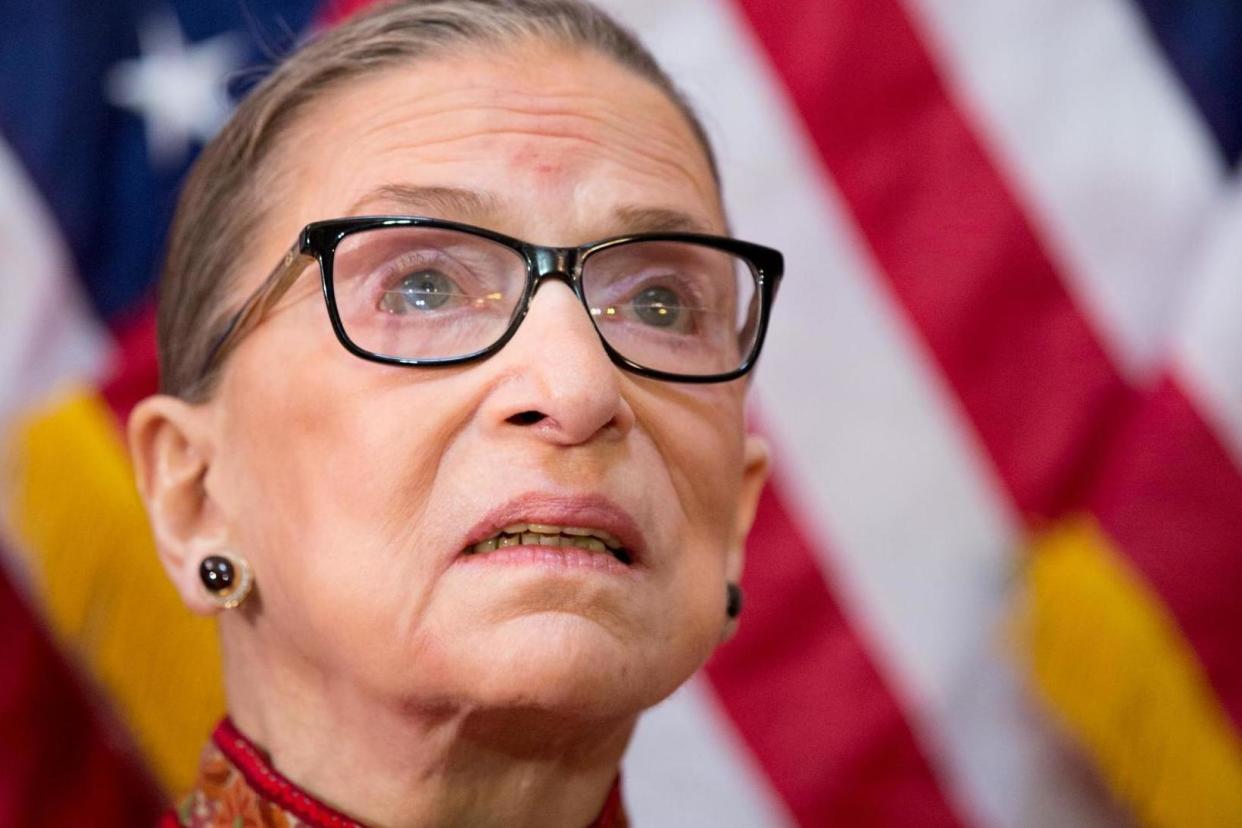Ruth Bader Ginsburg says first-trimester abortion is 'far-safer than childbirth' while eviscerating controversial Louisiana bill

Ruth Bader Ginsburg dismantled a controversial Louisiana abortion bill during an hour of arguments at the US Supreme Court this week, systematically striking down components of the law she previously opposed during a preliminary vote.
The 86-year-old Supreme Court justice, who recently returned to the nation’s highest court after announcing she was cancer-free in January, seemed to aggressively push back against demands from lawyers representing the Trump administration and state of Louisiana to approve the legislation during Wednesday’s arguments.
Louisiana’s Act 620 would require abortion providers to have admitting privileges at a hospital within 30 miles of its facilities, in the event that a woman needs medical care after having an abortion.
As the Supreme Court justice noted, however, a woman would almost certainly visit her own local doctor or hospital in the event that she needs care.
“If the woman has a problem, it will be her local hospital that she will need to go to for the care, not something 30 miles from the clinic, which does not have a necessary relationship to where she lives”, she said.
Moreover, the justice argued that women who have abortions rarely ever require medical treatment afterwards.
“Most of the people who get abortions never have any need to go to a hospital, isn't that so?" she asked the attorneys, later adding: “You don't dispute … that among medical procedures, first-trimester abortion is among the safest, far safer than childbirth."
The attorneys acknowledged that, while women occasionally require hospitalization after having an abortion, it’s “often true” that they do not.
The justice reminded attorneys that the Supreme Court “already held that admitting privileges served no medical benefit”.
“There is not even a plausible conflict in this case”, she said, according to a transcript of the arguments.
Act 620 would also implement a state-mandated 24-hour waiting period, which critics have described as a barrier to abortion access. Others who oppose the bill said it would effectively restrict women without the means to travel to abortion clinics located within a permissible distance to hospital, as others outside of such distances are forced to close due to the law.
An attorney defending the legislation told the justices “it’s not clear that you won't call the clinic and say to your doctor, 'I'm having a problem,' and your doctor will say, 'Then go to the following hospital where I have privileges, I'll meet you there’”.
According to CNN, the Supreme Court justice “looked less than convinced” by that argument.

